Teaching
After beginning her career at Virginia Tech (2003-09), Dr. Kao started working with seminarians and doctoral students at Claremont School of Theology and Claremont Graduate University (2009-20). She resumed teaching both undergrads & grad students as Visiting Professor at Loyola Marymount University when she took leave from CST during the pandemic.
A gifted educator, Dr. Kao has been recognized for teaching excellence at Harvard University, Virginia Tech, and Claremont School of Theology.
Professor Kao’s Courses at Claremont School of Theology
All classes at Claremont School of Theology have been cross-listed at Claremont Graduate University.
She will be teaching the following two courses in Fall 2023: (1) Intro to Christian Ethics and (2) Animal Theology & Ethics and she invites you to view her course trailers.
Here are the courses she regularly teaches.
Animal Theology & Ethics
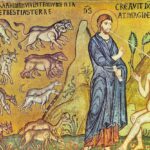 Animal studies (a.k.a. human-animal studies) represents a cutting edge of academe. Scholars from a variety of disciplines are increasingly acknowledging that we can no longer bracket “the question of the animal” if we are to live truly examined lives.
Animal studies (a.k.a. human-animal studies) represents a cutting edge of academe. Scholars from a variety of disciplines are increasingly acknowledging that we can no longer bracket “the question of the animal” if we are to live truly examined lives.
This course provides a serious engagement with philosophical and theological reflection on the status of nonhuman animals as well as the nature and extent of human obligations toward them. As we raise classical philosophical, theological, and public policy/legal questions about other creatures (e.g., can animals be directly wronged? will animals be redeemed?), we will discover that we are simultaneously raising questions about the human condition.
Asian American Christianity
 How is Christianity being practiced within and among Asian American communities? What do theology, biblical interpretation, ethics, and ministry look like from Asian American Christian perspectives? Will the future of what originally began as Chinese, Japanese, Korean, Vietnamese, Filipino, or other Asian mono-ethnic churches in the U.S. see retention of the bilingual, ethnic-specific model (i.e., “mother tongue” for immigrants, English services for subsequent generations), the transition to primarily English-speaking pan-Asian congregations, or the development of multi-racial and/or multilingual services and ministries? What is gained and lost in these different models of ministry?
How is Christianity being practiced within and among Asian American communities? What do theology, biblical interpretation, ethics, and ministry look like from Asian American Christian perspectives? Will the future of what originally began as Chinese, Japanese, Korean, Vietnamese, Filipino, or other Asian mono-ethnic churches in the U.S. see retention of the bilingual, ethnic-specific model (i.e., “mother tongue” for immigrants, English services for subsequent generations), the transition to primarily English-speaking pan-Asian congregations, or the development of multi-racial and/or multilingual services and ministries? What is gained and lost in these different models of ministry?
This course introduces students to the institutions and practices of Christians in America of Asian heritage and exposes them to the fields of Asian American theology, biblical hermeneutics, and ethics. Additional topics include immigration and transnationalism, identity development and construction, racism and racial reconciliation, pastoral challenges in Asian American ministry, and a comparison of the diasporic experiences of Asian American Christians with those of other racial-ethnic groups.
Christian Perspectives on War and Peace
![]() This course explores Christian (especially Western) perspectives on the morality of war and peace. We will proceed thematically and somewhat chronologically as we cover the major approaches in Christian ethical reflection on the subject matter: pacifism, just war, holy war, and Christian realism. We will also consider the more recent conceptual frameworks of “just peacemaking” and “just policing” as we assess whether either approach can break the apparent centuries-long impasse between pacifist and just war commitments.
This course explores Christian (especially Western) perspectives on the morality of war and peace. We will proceed thematically and somewhat chronologically as we cover the major approaches in Christian ethical reflection on the subject matter: pacifism, just war, holy war, and Christian realism. We will also consider the more recent conceptual frameworks of “just peacemaking” and “just policing” as we assess whether either approach can break the apparent centuries-long impasse between pacifist and just war commitments.
Other topics to be discussed include weapons of mass destruction, guerila warfare, terrorism, humanitarian intervention, the responsibility to protect (R2P), preemptive and preventative wars, “just rebellion,” drone warfare, and postwar justice. While not the focus of this course, some comparative references to Jewish and Islamic reflections on war and peace will be made where relevant.
Ethical Theory: Meta-ethics
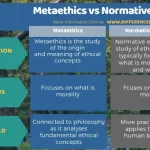 Specific questions of good and bad or right and wrong (e.g., about abortion or war) are matters of applied ethics. When we ask more general questions about ethical properties (e.g. what makes something good or bad, right or wrong?), we move into the realm of normative ethical theorizing. When we concern ourselves further with the status of morality or ask ourselves what sort of activity morality is, we move into the terrain of metaethics (e.g., are moral judgments true or false, objective or subjective and relative, and can they be established in the same ways that empirical and scientific claims can?).
Specific questions of good and bad or right and wrong (e.g., about abortion or war) are matters of applied ethics. When we ask more general questions about ethical properties (e.g. what makes something good or bad, right or wrong?), we move into the realm of normative ethical theorizing. When we concern ourselves further with the status of morality or ask ourselves what sort of activity morality is, we move into the terrain of metaethics (e.g., are moral judgments true or false, objective or subjective and relative, and can they be established in the same ways that empirical and scientific claims can?).
This course, designed for serious students of ethics, will focus on the third set of questions (metaethics); a companion course focuses on the second set (normative ethics). Theories and concepts to be discussed include the following: moral objectivism and relativism, nihilism, expressivism, error theory, cognitivism and non-cognitivism, realism and anti-realism, and naturalism and non-naturalism. We will also consider the kinds of metaethical claims that are often made in various religious traditions (e.g., divine command theory).
Ethical Theory: Normative Ethics
 Specific questions of good and bad or right and wrong (e.g., about abortion or war) are the matter of applied ethics. When we ask more general questions about ethical properties (e.g. what makes something good or bad, right or wrong?), we move into the realm of normative ethical theory. When we concern ourselves further with the status of morality or ask ourselves what sort of activity morality is, we move into the terrain of metaethics (e.g., are moral judgments true or false, objective or subjective and relative, and can they be established in the same ways that empirical and scientific claims can?).
Specific questions of good and bad or right and wrong (e.g., about abortion or war) are the matter of applied ethics. When we ask more general questions about ethical properties (e.g. what makes something good or bad, right or wrong?), we move into the realm of normative ethical theory. When we concern ourselves further with the status of morality or ask ourselves what sort of activity morality is, we move into the terrain of metaethics (e.g., are moral judgments true or false, objective or subjective and relative, and can they be established in the same ways that empirical and scientific claims can?).
This course will focus on the second set of questions (normative ethics); a companion course focuses on the third set (metaethics). It is designed for serious students in ethics who wish to study both the classics and contemporary commentary and critique on those seminar texts. Normative ethical theories to be examined include the following: utilitarianism, Kantian ethics, contractualism, natural law, intuitionism, theories building on Aristotle’s virtue-based approach to ethics, and feminist ethics. We will also consider the various ways in which religious ethics intersects with philosophical ethics.
Feminist Ethics
 The field of feminist ethics can be understood as an attempt to reformulate traditional ways of doing ethics insofar as the latter has been faulted for insufficiently attending to women’s perspectives and experiences. We will discuss whether and how feminist moral theorizing not only challenges existing patriarchal structures and modes of inquiry, but also presents novel ways of doing ethics. We will also explore several varieties of feminist ethics that arise from the different answers feminists give to the questions what explains women’s second-sex status and whether the universal category “woman” is useful or itself oppressive in social analysis. Class readings will primarily be drawn from the Western philosophical and Christian theological traditions. This course will also be taught using feminist pedagogy.
The field of feminist ethics can be understood as an attempt to reformulate traditional ways of doing ethics insofar as the latter has been faulted for insufficiently attending to women’s perspectives and experiences. We will discuss whether and how feminist moral theorizing not only challenges existing patriarchal structures and modes of inquiry, but also presents novel ways of doing ethics. We will also explore several varieties of feminist ethics that arise from the different answers feminists give to the questions what explains women’s second-sex status and whether the universal category “woman” is useful or itself oppressive in social analysis. Class readings will primarily be drawn from the Western philosophical and Christian theological traditions. This course will also be taught using feminist pedagogy.
Introduction to Christian Ethics
 This course is designed to introduce students to the field of Christian ethics. We will read diverse selections from classical and contemporary Christian thinkers, examine various sources of and approaches to Christian ethical reflection, and critically assess a variety of contemporary moral issues. We will explore whether and how ethics done from a Christian perspective differs from other (especially secular) traditions of moral inquiry. We will also discuss what role (if any) Christian ethics should play in the formation of public policy.
This course is designed to introduce students to the field of Christian ethics. We will read diverse selections from classical and contemporary Christian thinkers, examine various sources of and approaches to Christian ethical reflection, and critically assess a variety of contemporary moral issues. We will explore whether and how ethics done from a Christian perspective differs from other (especially secular) traditions of moral inquiry. We will also discuss what role (if any) Christian ethics should play in the formation of public policy.
Modern North American Christian Social Ethics
 A historical and contextual analysis of major—and mostly Protestant—thinkers and key texts in 20th century North American Christian Ethics, particularly as they relate to questions of social transformation and social justice. We will spend more than half of our class discussing the now-classical approaches of Walter Rauschenbusch, Reinhold Niebuhr, H. Richard Niebuhr, James Gustafson, Paul Ramsey, and Stanley Hauerwas. In the last third, we will discuss how formidable thinkers beyond the dominant white male norm powerfully challenged and changed the field of Christian ethics in their time (Beverly Wildung Harrison, James Cone, Katie Geneva Cannon, Ada María Isasi-Díaz). We will end with an award-winning book on environmental ethics that was published by a leading ethicist at the turn of the century.
A historical and contextual analysis of major—and mostly Protestant—thinkers and key texts in 20th century North American Christian Ethics, particularly as they relate to questions of social transformation and social justice. We will spend more than half of our class discussing the now-classical approaches of Walter Rauschenbusch, Reinhold Niebuhr, H. Richard Niebuhr, James Gustafson, Paul Ramsey, and Stanley Hauerwas. In the last third, we will discuss how formidable thinkers beyond the dominant white male norm powerfully challenged and changed the field of Christian ethics in their time (Beverly Wildung Harrison, James Cone, Katie Geneva Cannon, Ada María Isasi-Díaz). We will end with an award-winning book on environmental ethics that was published by a leading ethicist at the turn of the century.
Religion and Human Rights
 What is the relationship between religion and human rights? Is it fundamentally adversarial or complementary — i.e., do religions impede the promotion of human rights or do religious communities offer resources to support their global protection and implementation? Is the very universality inherent the concept of human rights compatible with the particularity and plurality of the determine religion faiths? This course will explore such questions through philosophical and comparative ethical analysis. Other topics include international human rights law, the theoretical bases of human rights, and selected case-studies of historical conflict between religion and human rights (e.g., proselytization, blasphemy laws, women’s rights pertaining to reproductive health, children’s rights).
What is the relationship between religion and human rights? Is it fundamentally adversarial or complementary — i.e., do religions impede the promotion of human rights or do religious communities offer resources to support their global protection and implementation? Is the very universality inherent the concept of human rights compatible with the particularity and plurality of the determine religion faiths? This course will explore such questions through philosophical and comparative ethical analysis. Other topics include international human rights law, the theoretical bases of human rights, and selected case-studies of historical conflict between religion and human rights (e.g., proselytization, blasphemy laws, women’s rights pertaining to reproductive health, children’s rights).
Religion and Law in the U.S.
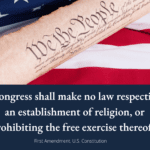 This course adopts an interdisciplinary approach to the study of law and religion in the U.S. We will begin with a discussion of the historic “American experiment” in religious freedom and disestablishment and then pay special attention to the meaning and interpretation of the Religion Clauses of the First Amendment to the U.S. Constitution as understood by the courts, scholars of law and religion, and other interested parties. We will cover four major topics: (1) the most important cases in Free Exercise and Establishment Clause jurisprudence, (2) their central legal principles and concepts, (3) the relationships particular religious individuals and groups have had and/or ought to have with the law (e.g., always or only selectively comply? attempt to use civil law to enforce religious observance, settle intra-group disputes, or provide remedies to injured individuals?), and (4) the manner in which the law has treated and/or ought to treat religious individuals or organizations (e.g., give constitutional or statutory exemptions to neutral laws of general applicability for religiously-motivated conduct? impinge upon a religious organization’s autonomy?).
This course adopts an interdisciplinary approach to the study of law and religion in the U.S. We will begin with a discussion of the historic “American experiment” in religious freedom and disestablishment and then pay special attention to the meaning and interpretation of the Religion Clauses of the First Amendment to the U.S. Constitution as understood by the courts, scholars of law and religion, and other interested parties. We will cover four major topics: (1) the most important cases in Free Exercise and Establishment Clause jurisprudence, (2) their central legal principles and concepts, (3) the relationships particular religious individuals and groups have had and/or ought to have with the law (e.g., always or only selectively comply? attempt to use civil law to enforce religious observance, settle intra-group disputes, or provide remedies to injured individuals?), and (4) the manner in which the law has treated and/or ought to treat religious individuals or organizations (e.g., give constitutional or statutory exemptions to neutral laws of general applicability for religiously-motivated conduct? impinge upon a religious organization’s autonomy?).
 Selected courses at Loyola Marymount University (2020-23)
Selected courses at Loyola Marymount University (2020-23)
THST 3236-03: God and the Human Experience (Fall 2023) – an upper-division undergrad, core course
THST 1060: God and the Good: An Intro to Christian Ethics (Spring 2023) – a lower-division undergrad, core course
THST 3086: Religion and (Non)Violence (Fall 2022) – an upper-division undergrad, core course
THST 6060: Foundations of Theological Ethics (Fall 2020) – a course for graduate (MA) theology students
Press Inquiries
Adam Schnitzer, Marketing & Sales Director
aschnitzer@stanford.edu
Mailing Address
Claremont School of Theology
1325 N. College Ave, Claremont, CA 92867
Office Hours
(Book directly by clicking the image)
Event Inquiries
(click the icon)

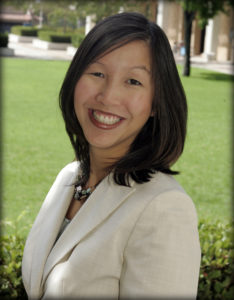
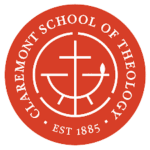
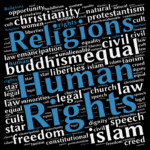 What is the relationship between religion and human rights? Is it fundamentally adversarial or complementary —
What is the relationship between religion and human rights? Is it fundamentally adversarial or complementary —
